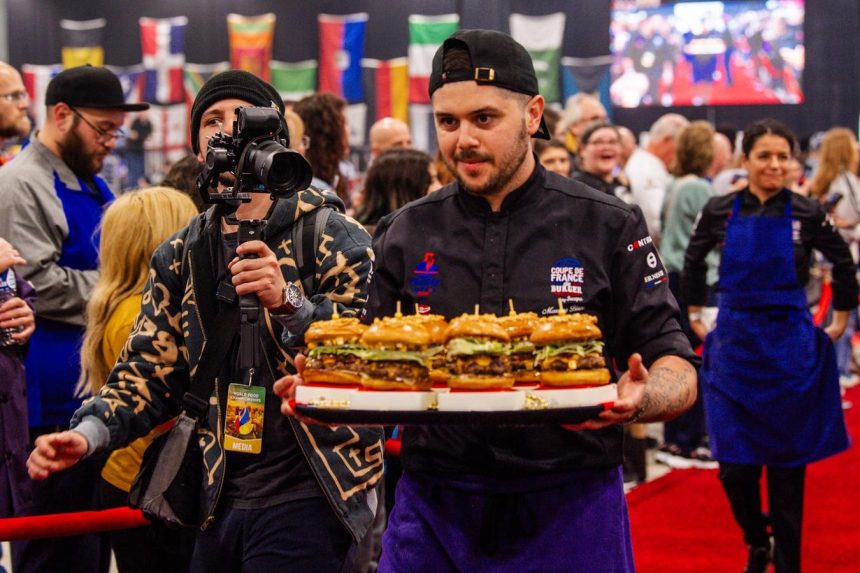The contemporary media landscape, often dubbed “Peak TV,” presents a significant challenge for content creators: breaking through the clutter. With an overwhelming abundance of choices available to viewers, capturing and retaining their attention requires a unique approach. The question becomes how to craft content that resonates with audiences and fosters a loyal following. The answer, increasingly, lies in tapping into universal themes and passions. And few things are as universally appealing as food. Food is not just sustenance; it’s a cultural touchstone, a source of comfort, and a catalyst for connection. This inherent appeal makes food-related content a powerful tool for engaging viewers. The World Food Championships (WFC), leveraging this universal draw, has positioned itself as the “world’s largest food sport competition,” capitalizing on the competitive spirit inherent in human nature and the emotional connection we have with food.
The WFC understands that food transcends mere consumption. It’s an experience, a form of expression, and a language of love. The act of preparing and sharing food fosters community and creates lasting memories. The WFC taps into this emotional resonance by presenting food as a sport, a competitive arena where culinary skills are tested and celebrated. This approach transforms the everyday act of cooking into a spectacle, engaging viewers who can relate to the passion and dedication of the competitors. Furthermore, the WFC’s structure, mirroring popular reality competition shows like American Idol, adds another layer of engagement. The journey of the contestants, their triumphs and setbacks, become a narrative that viewers can invest in, fostering a loyal following.
Founded in 2012, the WFC has evolved from a series of smaller, niche culinary competitions into a global phenomenon. Recognizing the growing popularity of food-related programming and the diverse talents of culinary enthusiasts, founder Mike McCloud envisioned a “Super Bowl” for food, a culminating event that would showcase the best of the best across various culinary disciplines. The WFC brings together home cooks, professional chefs, and competition teams, offering a platform for them to showcase their skills and compete for the coveted title of World Food Champion. This inclusive approach broadens the appeal of the competition, attracting a diverse viewership that reflects the multifaceted nature of the culinary world.
The WFC’s success can be attributed, in part, to its strategic adoption of a proven formula: the reality competition format. Mike Eaton, CEO of WFC and a former producer for American Idol, recognized the potential of applying this format to the culinary world. American Idol’s success stemmed from its relatability, its focus on ordinary people with extraordinary talent, and its interactive element that allowed viewers to participate in the outcome. Eaton saw a parallel in the world of food. Everyone eats, everyone has a connection to food, and everyone can appreciate the skill and creativity involved in culinary arts. The WFC leverages this inherent relatability, creating a competition that resonates with a broad audience, regardless of their culinary expertise.
The timing of the WFC’s emergence also played a crucial role in its success. The rise of food-focused media, coupled with the recent pandemic, further fueled the public’s interest in cooking and culinary competitions. The pandemic, in particular, forced people to spend more time at home, rediscovering the joys of cooking and experimenting in the kitchen. This renewed focus on home cooking created a captive audience eager for culinary inspiration and entertainment. The WFC, with its focus on accessible recipes and relatable contestants, provided just that. This confluence of factors positioned the WFC perfectly to capitalize on the growing appetite for food-related content.
Looking ahead, the WFC is poised for continued growth and expansion. With a network television deal in the works, a partnership with major retailers like Walmart and Sam’s Club, and plans for consumer products, licensing, and merchandising, the WFC is transforming itself into a multifaceted brand that extends beyond the competition itself. This strategic diversification will further solidify the WFC’s position as a leading force in the food entertainment industry. The WFC’s ambition extends beyond national borders, with plans for global expansion, including a territory partnership in the Middle East and North Africa. This global vision reflects the universal appeal of food and its power to connect people across cultures. In a crowded media landscape, the WFC has found a recipe for success by tapping into the universal language of food and the enduring appeal of competition.



